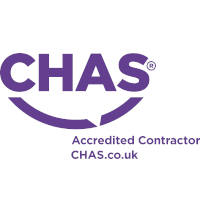Commercial kitchens get a lot of wear and tear, and grime can build up in the blink of an eye. Whilst all commercial kitchens have their own daily cleaning regimes for obvious health and safety reasons, hard-to-reach and out-of-sight areas can easily get less than their fair share of proper care. In any commercial kitchen grime builds up naturally over time. This presents health risks and fire safety risks. That’s why deep cleans are essential in the commercial kitchen.
Poor cleaning methods will inevitably lead to a failure in meeting health and safety standards, and that could hurt your business more than you think. Here are some tips to help you keep your commercial kitchen gleaming all year round. With our deep-clean insights you’ll have those easy-to-miss places in tip top condition in a flash.
Common areas often forgotten in daily and weekly cleaning routines
It’s easy to forget areas that are out of reach and out of sight. Be sure to include these areas in weekly or monthly routines.
- High shelves
- Walls
- Drains and gulleys
- Underneath appliances (fridges, freezers, cookers)
- Seals, shelves and doors of fridges and other appliances
- The spaces between walls and equipment
- Ventilation systems and fans
- Lighting fixtures
- Outdoor rubbish bins
Sink cleaning tips
Without regular cleaning, sinks can become clogged with kitchen waste, and grime can build up very quickly. Regular cleaning with a dual purpose cleaner and disinfectant should be employed, as sinks are a hotbed for dirt and germs that aren’t visible to the naked eye.
Heavy grease and oil are common in the commercial kitchen and catering companies are required by law to keep these under control, with an effective means of grease removal on site. Keeping your drains and piping hygienically clean and smelling neutral is an important aspect of commercial kitchen cleaning. Ensure your grease trap is correctly installed, serviced and maintained.
Dishwasher cleaning tips
It may seem like an irony, but dishwashers also need regular cleaning and care. Another irony is that it is always a good idea to pre-rinse items going into the dishwasher to remove baked on food deposits. Leftover food can clog your filter and will affect your dishwasher’s performance. To keep your dishwasher clean and in good condition, follow these tips:
- For hard water areas, use water softening salts. This will help your dishwasher to run more effectively for longer.
- Regularly clean the inside of your dishwasher and the seals with a non-abrasive cloth and a multipurpose cleaner.
- When your dishwasher finishes its load, leave the door open for 15 minutes to reduce humidity. This will help keep the inside clean.
Hard surface cleaning tips
Hard surfaces in the kitchen are common areas for bacteria to accumulate and so require regular cleaning. Cracks, crumbs and excess water provide the perfect environment for bacteria. All surfaces should be cleaned and properly dried off before use.
- Clear surfaces of all debris and kitchen items before cleaning.
- Wear gloves and wash hands prior to and after cleaning.
- Don’t overuse cleaning spray – hold at least 8 inches above the surface and spray lightly.
- Allow the spray to work on the surface for 5-10 minutes for a deeper clean.
- Use non-abrasive cleaning cloths to prevent surface damage.
- Always clean spills and food stains at the time to prevent staining.
- Place cleaning cloths in warm water and disinfectant between uses, and always launder cloths at appropriate high temperatures.
Colour coded cleaning
Colour coded cleaning ensures there is no cross-contamination in your kitchen area. Just as raw and cooked food should be separated, cleaning materials for different areas of the kitchen should also be kept separate to minimise the likelihood of cross-contamination of germs. The idea is to designate a particular colour to a particular area or specific surface. Colour coding should be in recognisable colours that you can easily buy equipment for and should include:
- Mops
- Mop Buckets
- Cleaning buckets
- Cloths
- Dustpans and brushes
- Rubber gloves
Using a colour system in your workplace can make cleaning easy, efficient and increase general hygiene and cleanliness.
A deep clean in your commercial kitchen will ensure floors, walls, ceilings, lights and all kitchen fittings and equipment are thoroughly cleaned. If you need a helping hand, our specialist cleaning team are just a phone call away.





